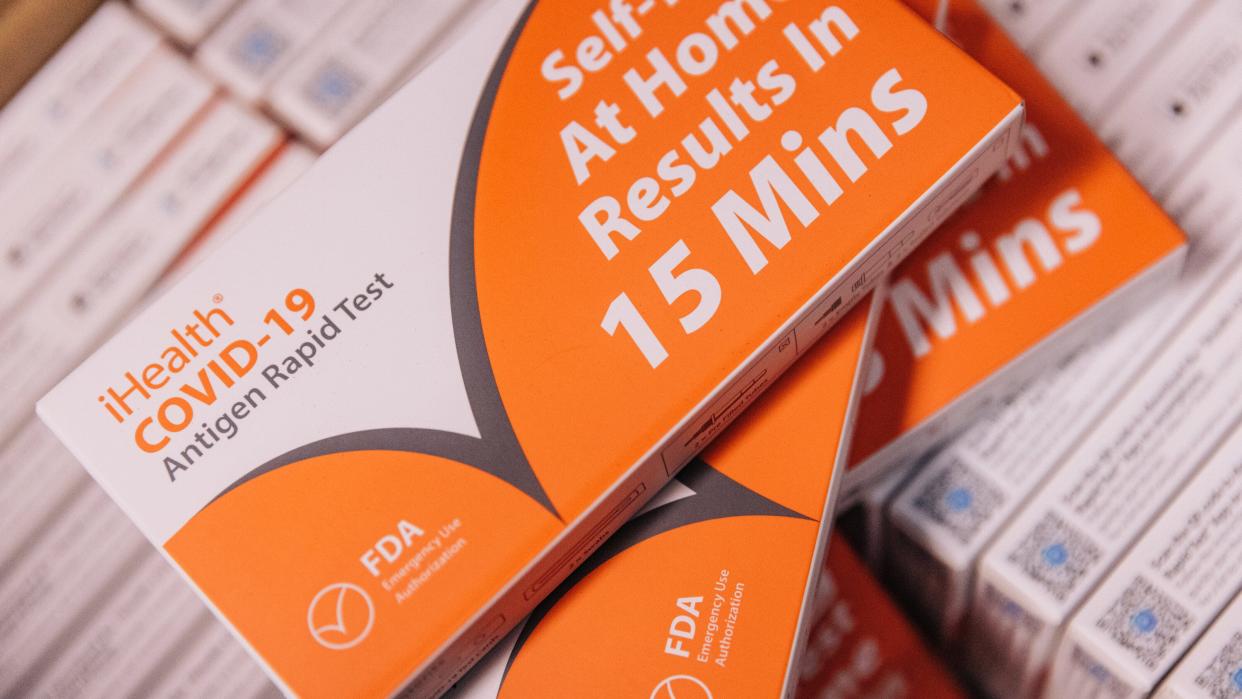Did you get a COVID test in the mail without ordering one? It might be a scam. What to do
Authorities are tracking complaints from New Yorkers who received unsolicited COVID-19 test kits in the mail as historically costly pandemic-era fraud continues to threaten taxpayers and consumers.
Some of the scams involved rapid at-home COVID-19 test kits being mailed to Americans, while other fraudsters invite victims to send test kits back for lab results. The unsuspecting victims join millions of others impacted by the more than $300 billion in pandemic relief program fraud losses.
Many of the test kit fraudsters are targeting Medicare recipients in hopes of bilking the taxpayer-funded program. Some identity theft scammers also use the test mailings as a means to extract personal data and information, federal officials said.
In some cases, once Medicare denies the bogus payment request, the scam companies come back to you, the unsuspecting consumer, with a bill in your name. While authorities make clear you should not pay the bill, the schemes could impact Medicare coverage and access to medical equipment you need.

What should you do if you receive unordered COVID-19 tests?
Scammers began sending out COVID-19 test kits before the pandemic public health emergency declaration ended last spring, cutting off federal funds that made free tests and other health services widely available.
Since then, authorities have issued consumer alerts about the unsolicited tests and launched investigations into those behind the fraud, federal officials said last week, responding to USA TODAY Network questions about New Yorkers receiving the kits.
Among the Federal Trade Commission tips for dealing with bogus kits and bills:
Don’t pay the bill. By law, companies can’t send you things you didn’t order and then demand payment. If you get a bill like this, report it at ReportFraud.ftc.gov.
Check your Medicare Summary Notices and Explanations of Benefits to see if your account was billed. Statements are available by mail or online at Medicare.gov. Look for services, products, or equipment Medicare paid for that you didn’t get. Do the statements show any double charges, or things you or your doctor didn’t ask for?
If you suspect Medicare fraud, call your health care provider or Medicare plan and ask for an explanation. If you aren’t satisfied with their response, call your local Senior Medicare Patrol for help filing a report or call Medicare at 1-800-MEDICARE.
Our investigation of COVID fraud in NY: How pandemic-era fraud exploded in New York
What authorities are doing about unsolicited COVID tests
As reports of unsolicited tests hit last year, the federal Centers for Medicare and Medicaid Services, or CMS, temporarily halted all payments for COVID-19 over-the-counter test kits on June 22.
Although the program resumed payments for these kits in September for claims submitted related to tests delivered during the pandemic public health emergency, CMS placed additional safeguards and edits in place to help prevent inappropriate payments, officials said in a statement.
More pandemic fraud:NY's COVID unemployment fraud topped $11B, partly due to system failures. What happened?
Providers have one year from the date of service to bill Medicare for payment. Providers cannot be paid for test kits provided after May 11, 2023, nor can they be paid for claims submitted outside of the one-year time limit, officials said.
CMS noted it continues to review and investigate complaints of abuse from this test kit program, officials added, and this includes working with law enforcement on fraud schemes that exploited the COVID-19 pandemic. Federal officials declined to discuss details of the investigatory process.
This article originally appeared on Rockland/Westchester Journal News: Get an unsolicited COVID test in the mail? Might be a scam. What to do
